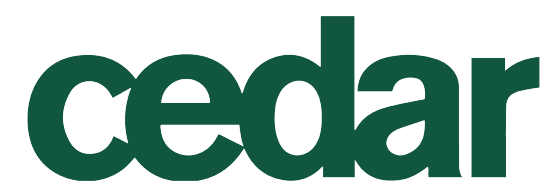In-House or Outsource? Rebalancing Tax Capability for Greater Value
For many finance leaders, the question of whether to build in-house tax capability is gaining momentum. As businesses grow in complexity – through international expansion, M&A, or evolving regulations – the reliance on external advisers may no longer offer the speed, continuity, or commercial insight required.
This isn’t necessarily about rising costs. In some cases, it’s about the cumulative value being lost by repeatedly outsourcing knowledge, decision-making, and strategy to third parties. A growing number of Finance Leaders are asking: could bringing expertise in-house lead to better control, faster execution, and stronger alignment with our strategic goals?
As businesses mature or expand internationally, the complexity of their tax profile grows. At this point, bringing tax in-house becomes a strategic decision – not a rejection of outsourcing, but a rebalancing of where value and responsiveness are best delivered. Of choosing where and when to use advisors, and what work makes sense to manage in-house.
The Tipping Point: When Outsourcing Falls Short
Tax compliance has traditionally been viewed as a periodic obligation – something to be dealt with at year-end or on an ad hoc basis with external help. But as regulations multiply and HMRC scrutiny increases, the pace and volume of tax issues are changing.
For many UK-based businesses, especially those trading internationally or undergoing rapid growth, the tipping point often comes when:
- Advisory fees become a recurring and significant line item.
- Finance teams are left managing tax exposure without the required technical skills.
- Responses to HMRC or international tax authorities are delayed, inconsistent, or costly.
It’s at this stage that building an in-house tax team transitions from being a cost to being a strategic asset.
Understanding the Benefits of In-House Capability
Bringing tax expertise in-house offers more than just cost savings. It allows businesses to retain critical knowledge, improve response times, and increase influence over commercial decisions.
An in-house tax specialist can:
- Align tax strategy with corporate objectives.
- Provide real-time guidance on new deals, restructures, and commercial changes.
- Mitigate compliance risks by improving documentation and processes.
- Contribute to wider ESG goals by ensuring responsible tax governance is built into operating models.
As Kirsteen Brannigan‑Hughes, Director of Tax Recruitment comments:
“What we’re seeing now is a shift – businesses that once treated tax as a tick-box exercise are now viewing it as a strategic function. Hiring in-house isn’t just about compliance; it’s about unlocking value.”
What Roles Make Sense?
The nature of the tax hire will depend on the business’s risk profile, structure, and strategy. However, typical in-house roles include:
- Head of Tax or Global Tax Director: For companies with multiple entities, complex structures or an international presence
- Group Tax Manager: For companies with high advisor spend on compliance and reliant on finance teams to manage compliance and reporting requirements
- Indirect Tax Lead / Specialist: For companies whose businesses means they have a volume of transactions or complex customs arrangements.
- Transfer Pricing Lead / Specialist: Increasingly vital given the UK’s changing TP documentation requirements.
- International Tax Manager: For multinational groups that are acquisitive or want to drive value through partnering with the international business
- Tax Technology Lead: Emerging role focused on tax data integrity and systems integration.
A Case in Point
A compelling example comes from a large housebuilder undergoing a transformational merger. The CFO recognised the need to elevate tax to a strategic business partner. Cedar was engaged to appoint a Group Tax Director capable of reshaping the team and joining the Finance Leadership Team. Within six months, the new Director had not only transformed the tax team’s internal reputation but also taken on additional responsibilities across Treasury and Insurance.
This move demonstrated how timely investment in leadership-level tax talent can unlock both commercial value and operational credibility.
Tax Governance and Control: The Overlooked Advantage
In-house specialists don’t just reduce costs – they build sustainable tax governance. With increasing scrutiny from regulators and a push for audit-ready processes, having robust documentation and internal controls is no longer optional. Senior Accounting Officer (SAO) obligations and expectations around real-time reporting require a level of control that is hard to achieve without dedicated internal ownership.
A well-run internal tax function can help embed control frameworks across the business, reduce key-person dependency on external advisors, and drive accountability for tax decisions.
The Leadership Perspective
Making the case for in-house hiring often comes down to aligning tax decisions with business objectives. Finance leaders should ask:
- What volume of tax advice are we purchasing?
- Are we repeatedly paying to explain our business model to third parties?
- Could internal talent reduce time-to-decision and improve outcomes?
Collaborating with your HR team or external recruitment partner to develop targeted hiring briefs is key. The ideal candidate must combine technical expertise with strong communication skills and commercial awareness. They must be able to work cross-functionally and influence board-level discussions.
Strengthening Tax Capabilities
In-house tax is no longer a luxury reserved for global enterprises. As complexity increases, hiring internal tax expertise can protect margins, improve speed of execution, and reduce risk exposure. For growing UK businesses, it’s not just a financial decision – it’s a leadership one.
Finding the right tax experts for your business can be challenging – the market is niche, and professionals move employers very selectively.
Are you planning to hire tax professionals? Contact our specialist tax recruitment team today and access our tax network and meticulous hiring practices.


